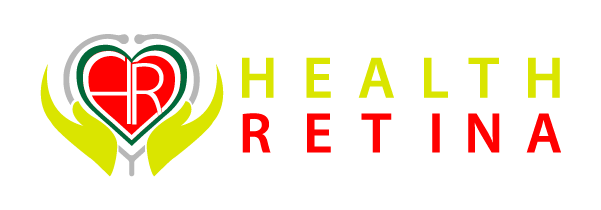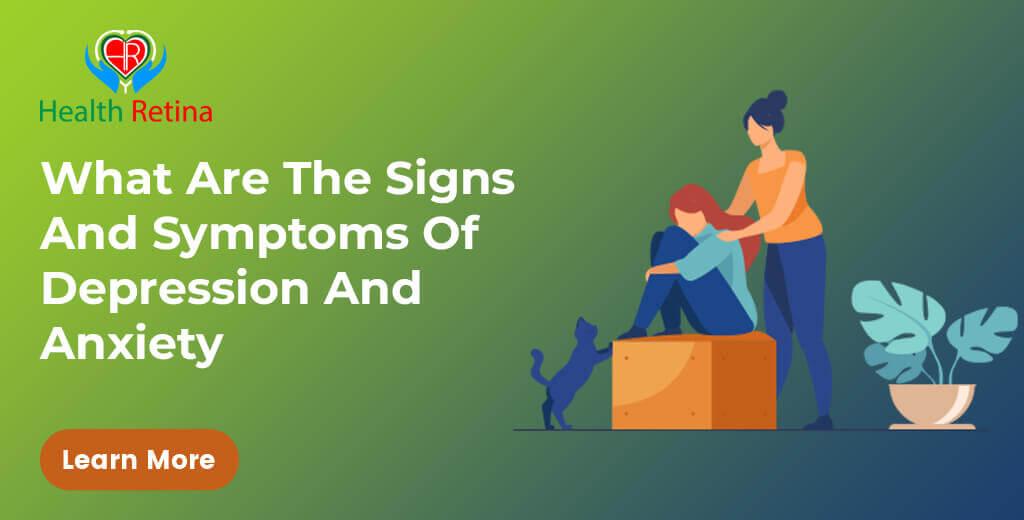What is Depression?
So, what is depression? It is like sitting in a warm tub of water, slowly you start to go under without even knowing. You slip under willingly, but once beneath the surface, you realize that under the warm, comfy surface it’s lonely, dark, and cold all around.
In spite of the fact that depression has now been accepted as a valid medical condition. With numerous highly effective ways of treatment, two-thirds of those living with it never seek treatment. According to research, almost 80% of those who did seek treatment through medication, psychotherapy or both improve with time. But since depression is a mental health issue, the fear of being termed “crazy” keeps many from this opportunity.
If you still don’t understand what is depression? Here is a glimpse of how it can tear your life apart at any age and not just for humans, but for animals as well.
Signs and Symptoms of Depression
Feeling blue once in a blue moon is fine. But feeling blue and then not being able to shake off that feeling can safely be considered signs of depression. Sadness is brought on by a major incident in your life like the loss of a loved one, a breakup, divorce or separation, material loss, or failure in your career. Just about any such situation can make a normal person sad. But alarm bells need to go off when this period of mourning gets extended unnaturally, such as months or years. If you have been feeling listless and down for more than a month or so. It’s time to seek help and find out if what you are experiencing is natural or are, the sneaky signs and symptoms of depression.
Since there are many types of depression. The symptoms of depression experienced by each individual determine what type they have. The most complicated and hard to treat is Major Depressive Disorder. Here is a list of conditions that can help determine if what you are experiencing is the real sign of depression or just an extended period of mourning.
Guilt & Self Doubt
One of the most subtle signs & symptoms of depression is guilt and self-doubt sneaking into your life. Suddenly you are not so sure of yourself, your self-esteem is shaky and you seem to believe that anything and everything is your fault. You become hopeless and feel helpless and with time start blaming and beating yourself up about anything and everything that goes wrong around you.
Loss of Interest
Signs/symptoms of depression sneak up on you so quietly that in most cases the patient realizes his state only when he has been trapped neck-deep in this situation. So, another sign to look out for is losing all interest in life and things which you greatly enjoyed previously. Depression sucks the life out of everything; it will keep you from all activities which previously gave you joy and a feeling of being alive. Activities like exercise, socializing, or doing anything positive will suddenly lose all their charm. In most cases, a low sex drive or even impotence is also one of the signs of the great depression.
Physical Fatigue
Signs and symptoms of great depression don’t just manifest themselves in your mind or moods, which is why a lot of times people will tell you “it’s all in your mind”. But symptoms or signs of depression can be seen and felt physically as well; unexplained fatigue and disruptive sleep patterns are among the physical depression symptoms. Depression often comes disguised as lethargy; from the onset, you will experience a lack of energy to do anything. This is undoubtedly one of the most debilitating depression signs and is usually followed by an excessive need to rest and sleep. However, insomnia is also considered one of the great depression symptoms, and its resulting lack of quality sleep can further wreak havoc on the anxious state of the patient.
Emotional Lack of Control
Some of the strongest signs or symptoms of depression anyone can experience is a complete change in personality; from having a bright, sunny, and positive disposition towards life they go to extremely negative, almost paranoid, and easily irritable attitudes. At times one might be experiencing a fit of anger and the next they are crying uncontrollably like a child; their emotions go haywire and this total lack of emotional control can further push them towards the edge.
Death Looks Tempting
And the scariest and most desperate signs/symptoms of depression are when the patient finds death more preferable to live. Humans are hardwired to self-preserve- suicide is the extreme of this mental conditioning. When people do something as drastic and desperate as suicide. It means something has so unhinged them that they have been pushed to the very edge of their normal mental spectrum. According to official statistics, almost 90% of the suicides committed in the US alone are by people suffering from signs of depression. If you are experiencing any or all of these great depression symptoms lately- seek professional medical help ASAP, since untreated depression can ruin more than just your life.
Depression and Anxiety Signs and Symptoms in Women
Women are unfortunately the high-risk group when it comes to depression since the world over one in four women will suffer from this condition at some point in their lives. But this could also be due to certain physical conditions unique to women only, such as their monthly periods, pregnancy, hormonal disturbance, menopause, or depression triggered by emotional distress or stress in general.
Signs and Symptoms of depression and Anxiety Caused by Menstruation
You may be the happiest woman that walked this earth and then, PMDD strikes sometimes in the company of PMS as well. So, what is PMDD? PMDD is Premenstrual Dysphoric Disorder. It is one of the most common mood disorders in women where they start feeling extremely angry, emotional, and agitated for no particular reason. PMDD starts showing its colors a few days prior to their periods. In some cases, women also experience PMS or Premenstrual Syndrome symptoms which include bloating, breast tenderness, and pain in the lower abdominal area or back.
So which women are most likely to experience depression symptoms in women caused by menstruation or PMDD? Well just about any woman can fall prey to PMDD, but for some, it can be genetic as well. Experts believe that PMDD is basically the brain's failure to process all the hormonal fluctuation going on in women’s bodies prior to periods.
If you think you suffer from depression symptoms in women or PMDD and would like to get treated for it, you need to make an appointment with your gynecologist and eventually mental health professional. You will probably be asked to maintain a food journal for a few weeks in order to ascertain if you really do have PMDD or not. Only after PMDD has been diagnosed will treatment be started. Treatment for PMDD will require taking antidepressants along with making a few lifestyle changes. You will be advised to limit your intake of caffeine, salt, sugar, and alcohol. Exercise and meditation are highly recommended in this regard along with psychotherapy.
Signs and Symptoms of depression in Women While Pregnant
Depression symptoms in women while pregnant are quite dangerous since it is not just the woman exposed to this threat but the fetus as well. If it is just the mild depression she is experiencing, it can easily be managed through therapy and a few lifestyle changes. But if it is severe depression, she has fallen prey to, then medication will be required. In case the woman has a long history of struggling with depression before getting pregnant, she will need assistance with postpartum depression after she delivers. For this purpose, the doctors may start the mother on mild antidepressants during the last trimester which will safely carry her through the postpartum period as well.
Depression and Anxiety Symptoms in Women During Postpartum
Most new mothers experience postpartum depression in one way or the other. However, alarm bells should ring out when the severity and duration of this depression increase beyond what is considered natural. Depression symptoms in women of this kind start three or four days after delivery and should end within 12 days, any feelings of depression beyond this time frame point towards major postpartum depression.
Depression symptoms in women suffering from major postpartum depression include feeling an overwhelming sense of helplessness, guilt over not being able to feel happy, and fatigue. Insomnia also adds to this stressful situation and often times the patient gets pushed to the edge due to this and attempts suicide or might even try to harm her own baby.
Depression Signs and Symptoms in Women Due to Menopause
Menopause is a rough time for any woman. Not only does it affect her body, but also plays havoc on her emotional and mental state. The physical symptoms of menopause, such as mood swings, agitation, hot flashes, and a rapid change in hormone levels usually trigger off depression symptoms in women as well. The chances of experiencing depression symptoms in women are higher for those who already either suffer from depression or have depression in the family.
So whichever stage of life you are in right now, if you feel depression becoming part of your life- Seek help before depression settles in with you. Seek Help ASAP.
Signs and Symptoms of Depression: Teens in Trouble
Yes, just about all teenagers you come across will be moody at best and grouchy at worst. We weren’t so different at that age. My own mood swings often plummeted from edgy highs to depths of dark distress and melancholy. But in teenagers, this is a phase and cannot be considered a symptom of depression.
However, if these erratic mood swings persist on a regular basis. Nothing seems to be pulling your teen out of the pit. Then it is definitely a symptom of depression and needs to be looked into seriously.
Depression and Anxiety in Teens
Depression at this age is different; it is not just a passing mood swing. What it is, is a mood disorder. Mood disorders are never to be taken lightly since like all other kinds of depression. This situation can lead to suicide or highly destructive behavior towards others. Up until now, people believed that since children and teens have not yet been exposed to the harsh realities of life, they cannot suffer from depression. But unfortunately, that is far from the truth. Depression is the third biggest cause of teen suicides in the world. So if we left untreated the initiation of future psychopathic criminals.
According to extensive research, 14 is the usual age for symptoms of teen depression to start showing in teens. 80% of such teens or their caregivers fail to understand the symptoms of teenage depression. Left untreated, 20% of these teens will suffer from chronic or doormat depression throughout their adult lives. The sad part of this analysis is that more than 70% of such teens could be cured of depression for good with the help of therapy or medication.
What is even worse is that these untreated symptoms of depression in teens will further down the road manifest themselves. In the lives of these adults in the shape of academic or professional failure. Substance abuse, severe mood disorders, eating disorders, manic depression, bullying, and even suicide.
Common Signs and Symptoms of depression and Anxiety in Teens
So how do you identify symptoms of depression in teens? Here are a few things you need to keep track of in your teen. If this attitude persists for more than a few weeks, its time to intervene:
- When nothing seems to shake them out of their irritable, cranky mood.
- When in spite of all your effort, the sadness and hopelessness remain.
- Lose all interests in their lives. They withdraw from everyone and everything which previously gave them joy.
- They seem listless and lethargic and their sleep patterns have suddenly changed.
- A drastic change in appetite has either resulted in significant weight gain or loss.
- Stay up late or all night long and are having trouble performing in school the next day.
- The dramatic change in performance in school, behavioral issues, and extreme sensitivity to rejection.
- He has become overly self-critical and is frequently talking about death.
Yes, most parents might be thinking that these can’t be symptoms of teenage depression, since that is how teens are. This is why it is important for a trained professional child psychologist or psychiatrist to examine. Your teen to make sure if it is just teen hormones or real depression.
Treating Symptoms of Depression in Teens
When treating symptoms of depression in teens. It is important to remember that depression mostly runs in the family and can very well be genetic. But one cannot disregard the presence of sexual, physical, or emotional abuse. Loss of a pet or death of a loved one, breakups, or parental abandonment. Whatever the cause may be, what is vital is that it be addressed as soon as possible. A trained professional may use medication as well as cognitive behavioral therapy to treat this issue. (What are the signs and symptoms of depression and anxiety?)
Leave a comment
Your email address will not be published. Required fields are marked *




